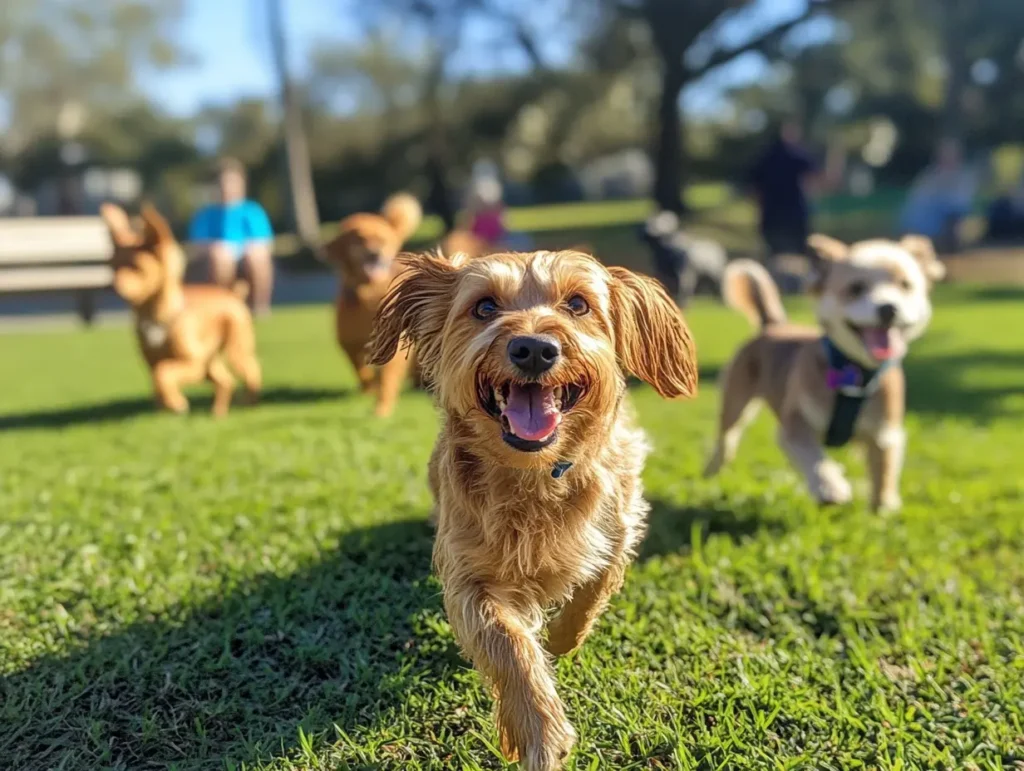Understanding the Current Concerns About Dog Respiratory Viruses
Recently, reports of *dog respiratory viruses* have been circulating, raising questions among pet owners about the health risks these illnesses pose. Respiratory viruses can spread quickly among dogs, particularly in environments where pets come into close contact, such as boarding facilities and dog parks. Early recognition of symptoms and prevention strategies are critical to keeping your furry friend safe. Is there a dog respiratory virus going around?
Dog respiratory infections, such as canine influenza, are often caused by viruses like H3N8 and H3N2. These illnesses spread through *coughing*, *sneezing*, and contact with contaminated surfaces. While the symptoms can range from mild to severe, timely action can prevent the condition from worsening. Staying updated with trusted resources like the World Small Animal Veterinary Association is essential for learning about current disease outbreaks and vaccination guidelines.
Why Dog Respiratory Viruses Matter
Many dog owners underestimate the impact of these illnesses. Respiratory viruses can lead to:
- Discomfort from *persistent coughing* and nasal discharge.
- Potential secondary infections, such as pneumonia.
- High transmission rates in multi-dog households.
Taking preventive steps like regular vaccinations and maintaining hygiene is crucial. You can find more information on prevention methods in our guide on animal disease control.
How You Can Stay Ahead
Understanding the risks and symptoms is only part of the equation. It’s also essential to stay vigilant during flu seasons or in areas with reported outbreaks. Frequent handwashing and disinfecting your dog’s living space can help minimize exposure risks. Check out our article on preventing pet diseases for more tips.
By staying informed, you can better protect your pet’s health and reduce the chance of serious complications.
What Are Dog Respiratory Viruses?
Dog respiratory viruses are contagious illnesses that primarily affect the respiratory system of canines. These infections can cause symptoms ranging from mild discomfort to severe complications. Some common viruses include *canine influenza* (H3N8, H3N2), *kennel cough* caused by Bordetella bronchiseptica, and canine adenovirus type 2.
How Do Respiratory Viruses Spread?
Respiratory infections in dogs are typically transmitted through:
- Direct contact with infected dogs during play or walks.
- Exposure to contaminated surfaces such as water bowls or shared toys.
- Aerosolized particles from coughing or sneezing.
Crowded environments like dog parks, grooming salons, and boarding kennels significantly increase the risk of spreading these infections. For more detailed insights, check out pet disease prevention tips by the CDC.
Symptoms to Watch Out For
Early detection of *dog respiratory viruses* can make a significant difference in recovery. Common symptoms include:
- Persistent coughing or sneezing.
- Nasal discharge, often clear or cloudy.
- Difficulty breathing, especially after physical activity.
- Lethargy and decreased appetite.
Severe cases may lead to secondary infections, such as pneumonia, requiring immediate veterinary attention. Learn how to spot signs early in our article on dog health care.
Why It’s Important to Stay Informed
Unaddressed respiratory issues can lead to complications that are costly to treat and distressing for your dog. Regular check-ups and timely vaccination are effective strategies to keep your pet safe. For additional tips, visit our guide on hygiene care for pets.

Current Trends and Spread of Dog Respiratory Viruses
Dog respiratory viruses are becoming a growing concern in specific regions. Seasonal factors and increased socialization among pets contribute to the rise in cases. Understanding how these viruses are spreading can help pet owners take practical steps to reduce the risks.
Why Are Cases Increasing?
Several factors have contributed to the recent uptick in dog respiratory infections:
- More pets being boarded in kennels or daycares, increasing exposure to infected animals.
- Warmer weather encouraging outdoor activities, leading to crowded dog parks.
- Lack of vaccination or delayed booster shots, leaving pets vulnerable.
These environments allow viruses to spread rapidly, especially when pets show mild symptoms that go unnoticed by their owners.
Signs of an Outbreak
Pet owners should be alert to signs of local outbreaks, including:
- Reports from veterinary clinics about rising cases.
- Increased coughing or sneezing among dogs in community spaces.
- Temporary closures of pet boarding facilities due to health concerns.
How to Protect Your Dog
Awareness is key to preventing the spread of *respiratory illnesses*. Monitoring your dog’s interactions and limiting exposure during high-risk seasons can significantly lower their chances of infection. Regular cleaning of shared items like toys, water bowls, and bedding is also important.
By taking these steps, you can help protect your pet and keep them healthy even in areas with reported outbreaks.

Prevention and Treatment of Dog Respiratory Viruses
Prevention is the most effective way to protect your dog from *respiratory viruses*. Simple habits and attentive care can reduce the likelihood of your pet contracting or spreading these infections. If your dog does show symptoms, early treatment can make a significant difference in recovery.
Steps to Prevent Infection
Here are practical ways to lower the risk of respiratory viruses for your dog:
- Keep vaccinations up-to-date, particularly for known viruses like canine influenza.
- Avoid high-traffic pet areas, especially during outbreaks.
- Wash your hands after interacting with other dogs to prevent bringing germs home.
- Regularly clean your dog’s bowls, bedding, and toys to limit exposure to germs.
What to Do If Your Dog Shows Symptoms
If your dog starts coughing, sneezing, or showing signs of fatigue, consider the following steps:
- Provide a quiet and comfortable area for rest to avoid further stress.
- Encourage your dog to drink plenty of water to stay hydrated.
- Avoid exposing them to other pets until symptoms subside.
In cases where symptoms worsen or persist, a visit to the veterinarian is recommended. Early professional care can prevent the illness from becoming more severe.
Maintaining Your Dog’s General Health
A strong immune system helps dogs recover more quickly from infections. Feeding a balanced diet, ensuring regular exercise, and scheduling periodic vet check-ups contribute to your pet’s overall well-being. These small yet consistent efforts can reduce the risk of infections over time.

FAQs About Dog Respiratory Viruses
Dog respiratory viruses can be confusing for pet owners, especially when trying to differentiate between mild symptoms and more serious issues. Below are answers to some frequently asked questions to help clarify common concerns.
Can Humans Catch Respiratory Viruses from Dogs?
In most cases, *dog respiratory viruses* do not pose a risk to humans. These viruses are typically species-specific, meaning they spread only between dogs. However, practicing good hygiene when handling an infected dog can reduce the spread to other pets.
Are All Dogs Equally at Risk?
No, certain factors increase the risk of respiratory infections:
- Puppies and senior dogs with weaker immune systems are more vulnerable.
- Unvaccinated dogs have a higher likelihood of contracting illnesses.
- Dogs that frequently interact with others in kennels or parks are at increased risk.
How Long Does It Take for a Dog to Recover?
Recovery times vary depending on the severity of the virus and the overall health of the dog. Mild cases can resolve in a week, while more severe infections may take several weeks of rest and care.
What Are Some Red Flags That Warrant a Vet Visit?
If your dog shows any of the following symptoms, it’s important to consult a veterinarian:
- Labored breathing or wheezing.
- Persistent cough that lasts more than a few days.
- Extreme lethargy or refusal to eat.
- Thick nasal discharge or signs of dehydration.
How Can I Keep My Other Pets Safe?
If you have multiple pets, isolating the sick dog is the best way to prevent the virus from spreading. Additionally, disinfect commonly shared items and keep an eye on the health of your other animals for early signs of illness.

Protecting Your Dog from Respiratory Viruses
Caring for your dog’s health involves staying informed about potential risks, like *respiratory viruses*, and taking proactive measures to reduce exposure. By being attentive to your dog’s well-being, you can help prevent illnesses and provide a safer environment for them to thrive.
Key Takeaways for Prevention
To minimize the risk of respiratory infections, consider these important practices:
- Keep your dog’s vaccinations updated to guard against common illnesses.
- Avoid crowded dog parks or boarding facilities during periods of known outbreaks.
- Practice good hygiene by regularly cleaning your pet’s bedding, toys, and food bowls.
- Monitor your dog’s behavior closely, especially during flu seasons, for any unusual signs.
Supporting Recovery at Home
If your dog has been diagnosed with a respiratory infection, offering a comfortable recovery environment is essential:
- Provide a quiet, warm space for rest away from other pets.
- Encourage hydration by offering fresh water frequently.
- Feed easily digestible meals to maintain their energy levels.
When to Seek Professional Help
While mild cases can often be managed at home, consult a veterinarian if symptoms persist or worsen. Early treatment can prevent complications and ensure your pet gets the best chance at a speedy recovery.
By staying aware and adopting simple habits, you can safeguard your dog’s health and contribute to their long-term happiness.







